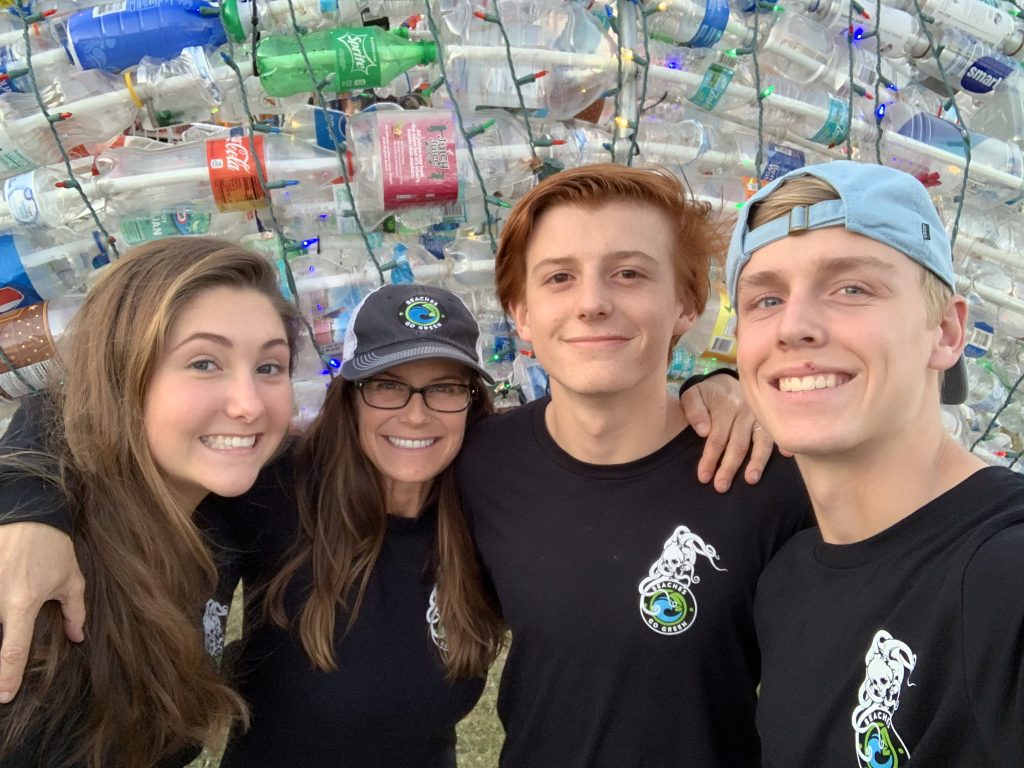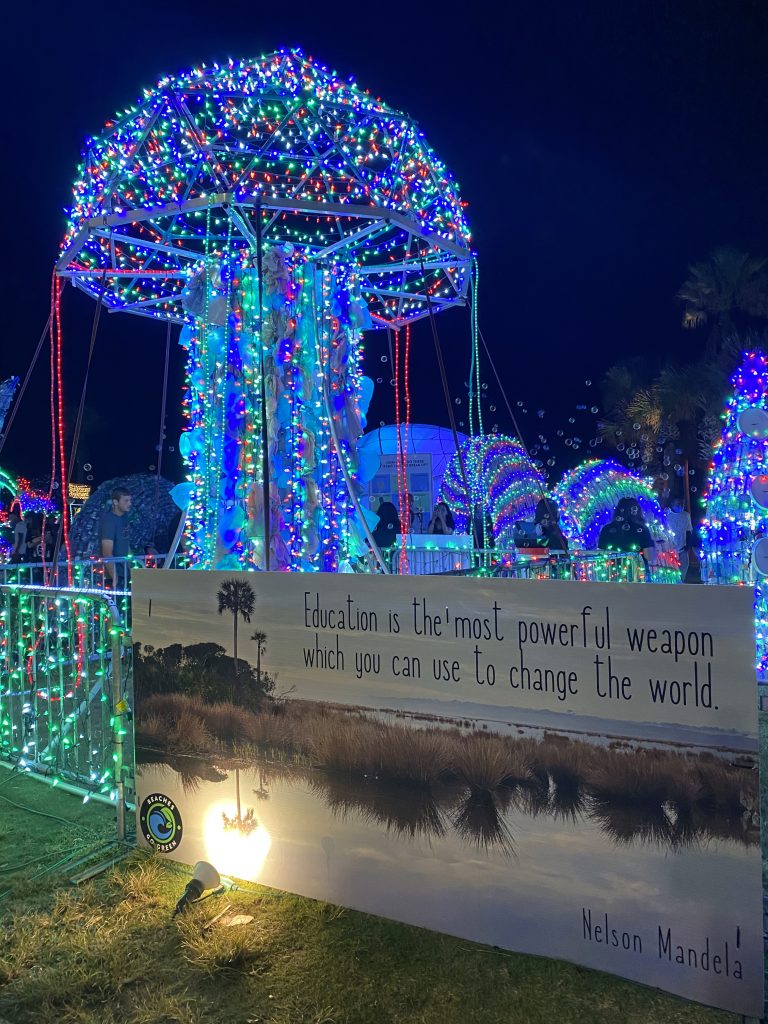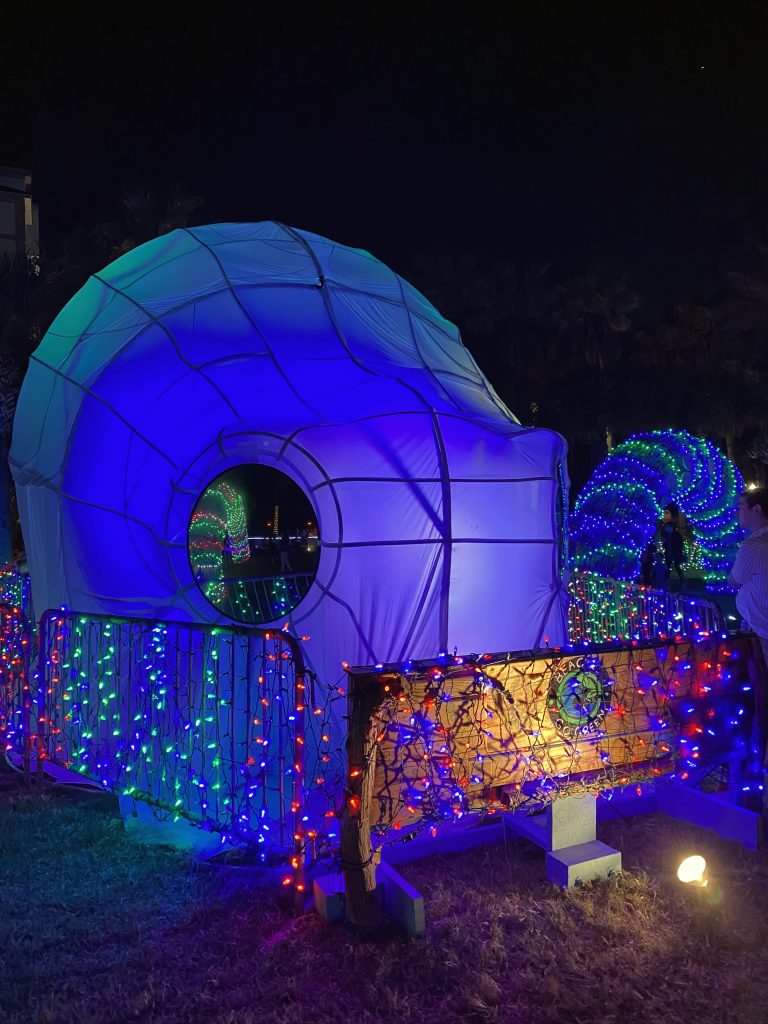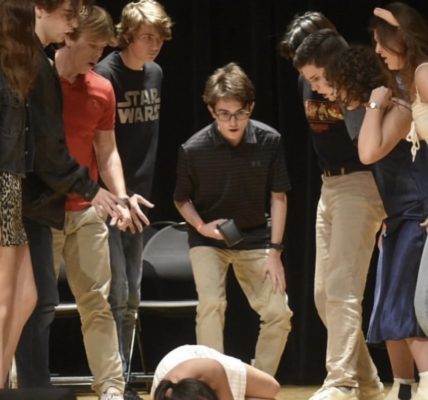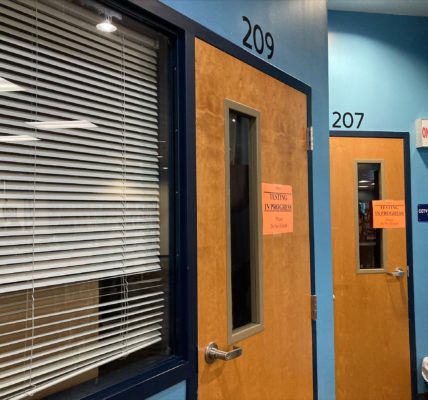By Natalie Decker
The Jacksonville Beach community gathers at Deck the Chairs to view the beautiful lighted sculptures and is immediately drawn to the 100-foot plot of land, holding the massive octopus made almost entirely out of single use plastic bottles with alternating colored lights. The sculpture towers over the guests, and its arm stretch out across the land in arches, so high that adults can walk straight through and admire the festive display, and also message that is conveyed though this exhibit.
Beaches Go Green is a local non-profit that is centered out of Atlantic Beach, aimed at educating and spreading awareness about single use plastic and the waste people produce. Founded in summer of 2018, Beaches Go Green has seen many different events over the past two years. But one of their most impressive feats is their involvement in Deck the Chairs. Deck the Chairs is an annual event in Jacksonville Beach in which different groups in the community come together to create a lighted exhibit at the Seawalk Pavilion, that is then open to general population during the holiday months to view and participate in. Beaches Go Green made its first appearance at Deck the Chairs in 2018, building a 315-foot-tall Jellyfish showcasing plastic bags as its tentacles. After receiving so much positive recognition from the plastic jellyfish, the next year founder Anne-Marie Moquin wanted to take on a much larger exhibit.
Ms. Moquin gathered together her large volunteer following as well as reaching out to a contracting agency and the Jacksonville recycling plant as reinforcements. This was going to be a massive undertaking. Ms. Moquin says, “Our team created a 100-foot Octopus that looks like it’s rising up out of the ocean.” Four of the octopus’s arms are showing in the display, each made of hundreds of single-use bottles. The four arms together contain over 15,000 bottles, each bottle hand strung onto PVC pipes by Beaches Go Green volunteers. Her son, Maximus Moquin, commented that the process took over two weeks. The head of the octopus is covered in a fabric called reprieve, made of 90 percent single use plastic water bottles. Although this will be the second year having the Octopus Garden installation at Deck the Chairs, it is receiving national recognition in this year of uncertainty.
As people walk through the exhibit, a light is shed on the single-use waste that is being produced at such a rapid speed, and that change needs to be made. The thousands of plastic bottles presented in the octopus, and the plastic bags that dangle from the towering jellyfish, wrapped in strands of light illuminate especially the effects of this waste on marine life. The goal of the exhibit is to inspire change in people, or as Ms. Moquin states, “We attract people by the beauty of the installation. It’s festive and beautiful but then the reality of the education is sure to set in. I hope that people feel a mix of emotions. I hope they feel surprised, concerned and ultimately inspired and hopeful that we can make a difference by changing our habits.”


